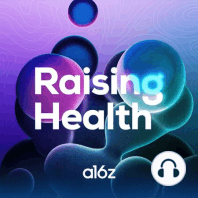25 min listen
Journal Club: Bioengineering Birth
FromRaising Health
ratings:
Length:
18 minutes
Released:
Dec 3, 2020
Format:
Podcast episode
Description
Infertility is a common struggle with limited treatment options, particularly if caused by an issue with the uterus. On this episode of Journal Club host Lauren Richardson (@lr_bio) talks to Professor Anthony Atala about his lab's work engineering a replacement uterus that can -- incredibly! -- support pregnancy and live birth in rabbits. They discuss how the Atala lab created these bioengineered uteruses and tested their functionality, what kinds of conditions they can be used to treat, and potential sci-fi-esque applications. Anthony Atala, MD (the G. Link Professor and Director of the Wake Forest Institute for Regenerative Medicine, and the W. Boyce Professor and Chair of Urology), joins host Lauren Richardson to discuss the results and implications of the article "A tissue-engineered uterus supports live births in rabbits" published in Nature Biotechnology.
Released:
Dec 3, 2020
Format:
Podcast episode
Titles in the series (100)
The Thermodynamics of Life: with @lifelikephysics, @vijaypande, and @omnivorousread Where does life truly begin? How do we understand the fundamental nature of what is “alive” and what is “not alive”? In this episode of Bio Eats World, Professor Jeremy England discusses his new book, Every Life is on Fire, all about how what we might use physics to understand to be the origins of life—and how we define what being alive is. As biologists, we are taught that life evolved as the result of Darwinian natural selection. But what happens if instead, you use a physicist’s lens to examine what life looks to be—and define it as a specialized order and relationship between matter and the patterns of it’s an environment? England—a senior director in artificial intelligence at GlaxoSmithKline, principal research scientist at Georgia Tech, former associate professor of physics at MIT, and one of Forbes’ “30 Under 30 Rising Stars of Science”—describes this new idea as “dissapative adaptation”. The by Raising Health
